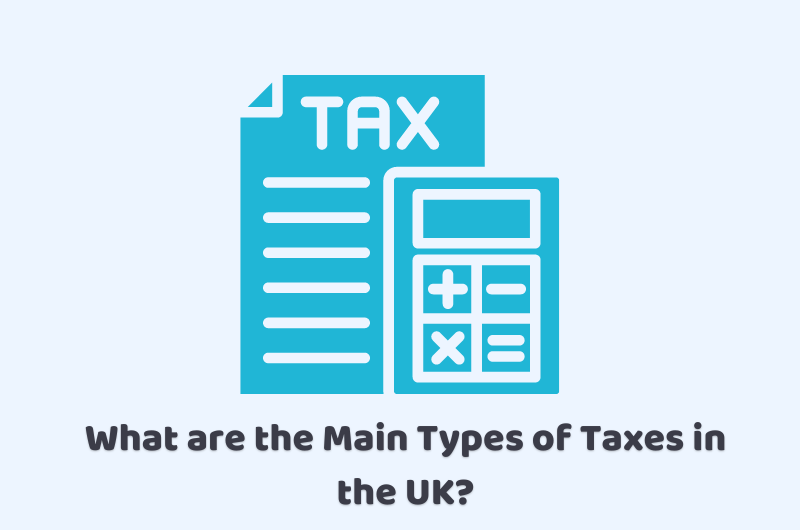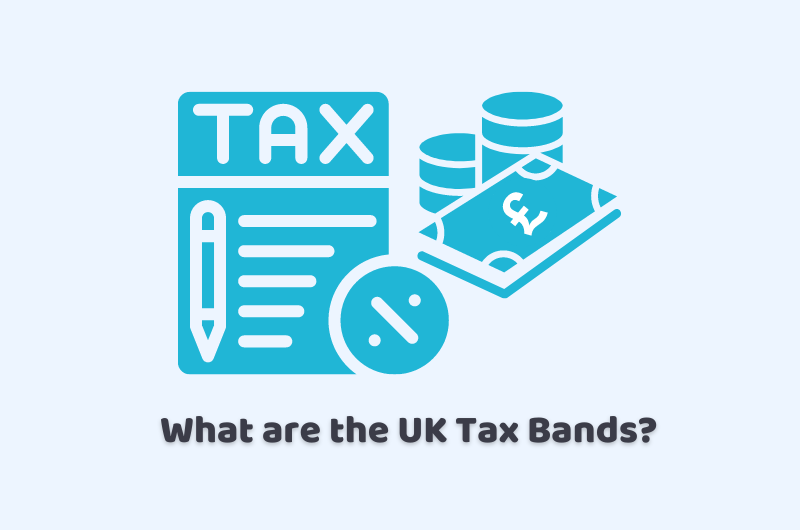
03/03/2023tax , Tax Issues , Tax News and Tips , Tax Saving Tips , Taxation
It has been observed that the tax code in the UK is most extended since the tax year 2009. It will not be wrong to presume that tax affairs are one of the most complex matters here. This is due to the fact that the tax authorities and system is designed in a straightforward way. One of the main yet difficult parts of tax rules is that even spouses are considered separate entities. Every individual whether living in a civil partnership, married, or single is being taxed individually according to the tax law. Then there are a few exceptions observed as well. As a beginner in tax affairs in the UK, you must gather basic information regarding the main types of taxes in the UK.
Moreover, this is imperative to mention here that when you will begin to pay taxes, you will have to go through three different stages. There is the involvement of the central government, local government, and the devolved government. The tax year is on the 6th of April and ends on the 5th of April and it is also known as the fiscal year. Moreover, there are main types of taxes that are mostly implemented for a resident of the UK. We have covered everything related to these types in this guide. Let us get started with the discussion to learn more.
Reach out to our smart and clever-minded guys to get an understanding of the main types of taxes in the UK. We will help to understand your queries instantly.
What are the Main Types of Taxes in the UK?
Usually there considered to be six main types of taxes that are implemented on individuals when living as a UK resident. This involves the tax liabilities of paying the national insurance contribution, value-added tax, excise duties, corporation tax, stamp duty, and income tax. The relevant details are explained below for further understanding.
1- National Insurance Contribution
National insurance is paid by individuals in the UK to ensure that they qualify for state pension and some other certain benefits from the government. National insurance contribution is mandatory to pay for the ones who are more than the age of 16 and earn to a certain limit. In the case of being self-employed, the profit has to be more than a certain amount to bring in the liability of paying the national insurance contribution.
Moreover, there are different classes of national insurance contributions. This explains that not every individual is paying the same amount. The decisive role is played by the amount you earn and what is your employment status in this regard. You must also ensure that there are no gaps in the record of your past payments of national insurance contributions.
2- Value-Added Tax (VAT)
Value-added tax is also known as a consumption tax. This tax is also a great source of government income just like the national insurance income tax is. The standard rate of VAT which is 20% is applied to several common things in the UK. The fair of taxis, pushchairs, prams, chocolates and alcoholic drinks are a few examples of which VAT is implemented with a standard rate normally.
However, the rates of VAT on the mobility of elders, solid fuel, heating oil, gas, electricity, car seats, and oil is a little lower than other things. There is a category of zero rates items well which includes poultry, meat, fruits, vegetables, and household water. Then comes the things that are exempted from VAT.
3- Excise Duties
Excise duty is normally charged on things like vehicles, betting, tobacco, and alcohol. The individuals who are involved in producing these items are also charged excise duty. Normally the excise duty tax is implemented on the final price for sale. The consumer will have to pay the excise duty indirectly to the government in the UK. There is a separate form for the excise duty as well. So it is better to be aware of the standard rates of excise duty to know what exactly are you paying in form of tax indirectly to the government.
4- Corporation Tax
A corporation tax is known to be a tax that is implemented on the number of profits of a company. This explains that if you are involved in carrying out business through a limited company, a foreign company that has a UK branch, or any club corporation, you will be liable to pay corporation tax. There is a standard rate of corporation tax as well which could even come down in certain situations. This depends on the kind of business you are carrying out that will decide how much you will pay as a corporation tax for your limited company.
5- Stamp Duty
This tax is known as the stamp duty land tax. If you are an individual who is interested in buying a piece of land or a party in the UK that has prices over a certain figure, you will have to pay stamp duty land tax. In the case of buying a first home in the UK, you might get entitled to some discounts in this regard. In some cases of buying the first home, you will not have to pay any tax at all.
6- Income Tax
This kind of tax is implemented on your income directly. How much amount you will pay in form of income tax depends on the figure you are learning that is over the amount of your personal allowance. You will have to consider the fact about which tax band you belong to according to your earnings. There are some cases where you can even apply for income tax relief.
The Bottom Line
Now that we have gathered a fair amount of information about what are the main types of taxes in the UK, we can bring the discussion towards wrapping up. There are main six types of taxes that are normally implemented according to your unique situation when you are a resident of the UK. Since the tax affairs and relevant rules are quite strict in the UK, you do not find any escape from paying the tax. We hope these few minutes of reading will help you to develop a better understanding of what are tax affairs and how to handle them efficiently as a UK resident.
Our team of professional members loves to hear out your business problems and find out the possible and suitable solutions quickly to the reporting in the UK. Contact us now.
Disclaimer: The information about the main types of taxes in the UK provided in this blog includes text and graphics of general nature. It does not intend to disregard any of the professional advice.



